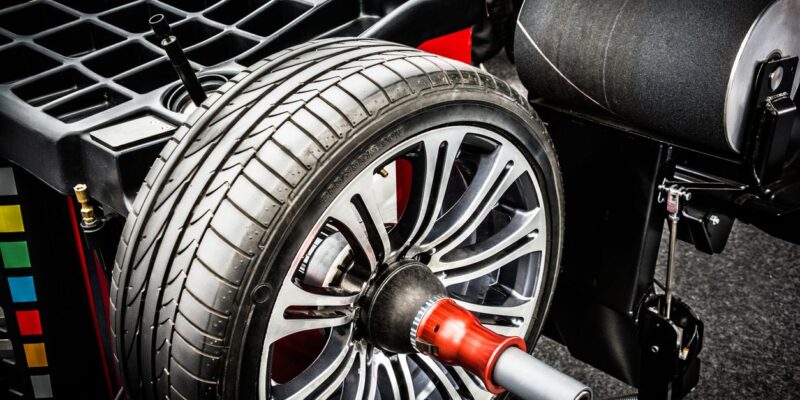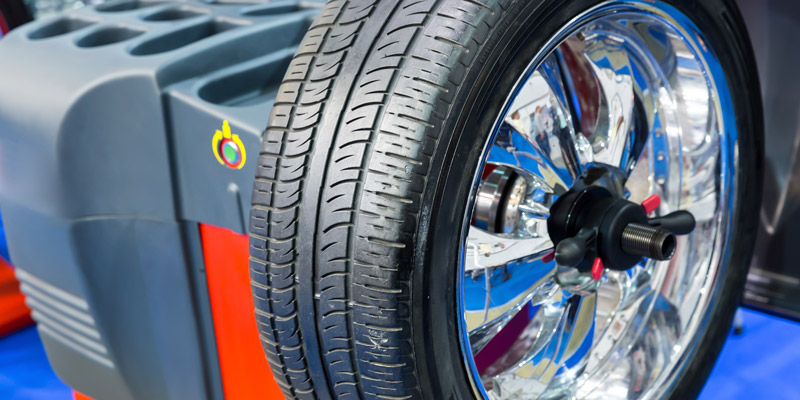What is Tire Balance and Why is it Important?
When it comes to maintaining your vehicle, one of the most crucial aspects often overlooked is tire balance This process involves adjusting the weight distribution around a tire to ensure it spins evenly while driving. Proper tire balance prevents uneven tire wear, ensures smoother driving, and improves fuel efficiency. Neglecting tire balance can lead to various issues such as vibrations, tire wear, and even dangerous driving conditions.
How is Tire Balance Done?
The tire balancing process is typically carried out using a specialized machine that spins the tire and detects any imbalances in its weight distribution. When an imbalance is found, small weights are attached to the rim of the wheel in strategic locations to counteract the uneven weight distribution. This precise adjustment ensures the tire rotates evenly without causing additional stress to your vehicle’s suspension system.
Signs of Unbalanced Tires
It can be difficult to notice an imbalance in tires without the proper equipment, but there are certain signs you can watch for. These include:
- Vibrations in the steering wheel or seats while driving at certain speeds
- Unusual wear patterns on your tires
- A rough ride or increased road noise
- Premature tire wear that leads to costly replacements
If you experience any of these symptoms, it’s essential to visit a professional tire technician for a tire balancing checkup.
The Benefits of Proper Tire Balancing
Maintaining proper tire balance provides several benefits that not only enhance your driving experience but also protect your vehicle in the long run:
- Improved Safety: Balanced tires ensure a smoother ride, reducing the likelihood of accidents caused by uneven tire wear.
- Increased Tire Longevity: By distributing the tire’s weight evenly, tire balancing prevents certain areas of the tire from wearing down faster than others, thus extending tire life.
- Enhanced Fuel Efficiency: When your tires are balanced correctly, less energy is needed to roll the tires, improving gas mileage.
- Better Handling and Comfort: Balanced tires provide a more stable ride, making it easier to steer and maintain control.
How Often Should Tires Be Balanced?
While the frequency of tire balancing depends on several factors, a general recommendation is to have your tires balanced every 6,000 to 8,000 miles or whenever you get a new set of tires installed. However, if you experience any of the symptoms mentioned earlier, it’s best to have your tires checked immediately. Frequent driving on rough roads or frequent tire rotations may require more frequent checks.
Balance Tires & Essential Information You Need to Know
What Does It Mean to Balance Tires?
The concept of Balance Tires is a critical aspect of vehicle maintenance that ensures your tires are in optimal condition for a safe and comfortable ride. Balancing tires refers to the process of ensuring that a tire’s weight is evenly distributed around the wheel. An unbalanced tire can lead to a variety of problems, including vibrations, uneven tire wear, and compromised vehicle handling.
Why Is Balancing Tires Necessary?
When tires are not properly balanced, the vehicle’s suspension system can be strained, leading to reduced tire life and increased fuel consumption. Furthermore, unbalanced tires can result in:
- Increased tire wear
- Reduced fuel efficiency
- Compromised vehicle control
- Discomfort while driving
By balancing your tires, you prevent these issues and ensure a smoother, safer driving experience.
How Do You Balance Tires?
Balancing tires is typically performed by a professional mechanic who uses a machine to detect any irregularities in the tire’s weight distribution. The machine spins the tire and wheel assembly, identifying areas where weight is uneven. Once the imbalance is detected, small weights are added to the rim to compensate for the uneven weight and make the tire rotate smoothly.
The Benefits of Balancing Tires
Balancing your tires offers numerous advantages, both in terms of vehicle performance and overall safety:
- Enhanced Safety: Properly balanced tires help you maintain control of your vehicle, especially at higher speeds.
- Increased Tire Life: Even tire wear reduces the chances of premature tire replacement, saving you money in the long run.
- Smoother Ride: Balanced tires result in a more comfortable and smoother driving experience, reducing vibrations and road noise.
- Improved Handling: Balanced tires improve your vehicle’s handling, providing better steering control.
How Often Should You Balance Your Tires?
It’s advisable to balance your tires every 6,000 to 8,000 miles or whenever you get new tires installed. However, if you notice symptoms like steering wheel vibrations or uneven tire wear, it’s a good idea to have your tires checked and balanced immediately.
FAQ: Balance Tires
Q1: How can I tell if my tires need balancing?
Some common signs that indicate your tires may need balancing include vibrations in the steering wheel or seats, uneven tire wear, or a rough, bumpy ride. If you experience any of these, it’s time to get your tires checked.
Q2: Can I balance my tires myself?
While it’s possible to balance tires manually, the process requires specialized equipment to ensure accuracy. It’s best to have your tires balanced by a professional mechanic.
Q3: How long does a tire balancing service take?
Tire balancing typically takes around 30 minutes to an hour, depending on the complexity of the job and the number of tires being balanced.
Q4: Is it safe to drive with unbalanced tires?
Driving with unbalanced tires can lead to premature tire wear, vibrations, and poor handling, which can ultimately affect your safety. It’s recommended to address tire imbalances as soon as possible.
Q5: Can tire balancing improve my fuel efficiency?
Yes! Properly balanced tires reduce rolling resistance, which can improve your vehicle’s fuel efficiency, saving you money at the gas pump.
These sections cover detailed information about tire balance and balance tires, providing a comprehensive understanding of why it’s crucial for your vehicle’s performance and safety. The FAQs answer common concerns and offer practical advice to help you maintain your vehicle in top condition.

